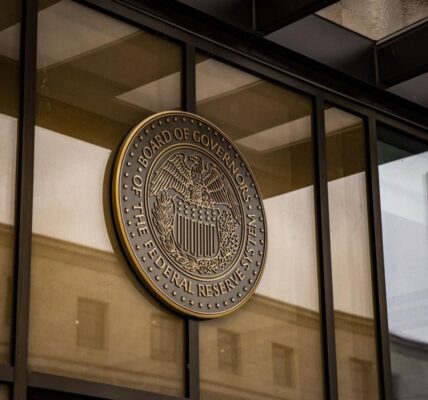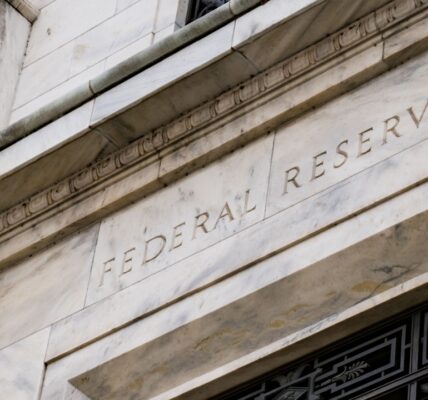Bitcoin and other major cryptocurrencies showed little movement on Wednesday following the release of the Federal Reserve’s December meeting minutes. The minutes hinted at persistent inflation concerns under the incoming administration of President-elect Donald Trump, signaling potential challenges for the economic landscape in 2025.
The Federal Reserve minutes noted that “the effects of potential changes in trade and immigration policy” under Trump’s administration could contribute to inflation remaining above the central bank’s 2% target. Officials also expressed caution about reducing borrowing costs too quickly over the next year.
Bitcoin, the largest cryptocurrency by market capitalization, is currently trading at $93,800, according to CoinGecko. The asset has dropped more than 3% over the past 24 hours, with most of the decline occurring prior to the release of the Fed’s report. Other major cryptocurrencies followed a similar trend. Dogecoin, the seventh-largest crypto asset, is down 4%, trading at $0.337. Ethereum and Solana have also fallen, down 4% and 5%, respectively, over the same period.
U.S. equities remained relatively flat in the wake of the Fed’s announcement. Traders now turn their attention to the release of new jobs data on Friday, which could provide further insights into the economic outlook.
The Federal Reserve’s report underscored concerns about rising inflation, particularly as Trump prepares to take office. While the President-elect has promised to improve the financial situation of average Americans, his preference for trade tariffs has raised alarms among economists, who warn that such policies could exacerbate inflationary pressures.
However, a recent report by The Washington Post suggested that Trump’s team might implement narrower tariffs than originally planned. Trump himself dismissed these claims, maintaining his commitment to a tough stance on trade.
Bitcoin and other riskier assets, such as technology stocks, have historically benefited from low interest rates. Lower borrowing costs encourage investors to seek higher returns from volatile assets.
The Federal Reserve aggressively raised interest rates throughout 2022 to combat inflation triggered by the COVID-19 pandemic. The rate hikes pressured Bitcoin and other speculative assets, but the central bank’s decision to lower rates in September 2024 provided a significant boost to Bitcoin’s price.
In December, Bitcoin reached a new all-time high of over $108,000, fueled by optimism following Trump’s election victory in November. Investors viewed Trump as a Bitcoin-friendly leader who could advance the digital asset industry while promoting deregulation on Wall Street.
Since the election, Bitcoin has rallied alongside U.S. equities, reflecting broader market confidence in Trump’s economic policies. However, with inflation risks persisting and the Federal Reserve adopting a cautious stance, the future trajectory of Bitcoin and other cryptocurrencies remains uncertain.
As traders await fresh economic data later this week, the interplay between inflationary pressures, interest rate policies, and Trump’s fiscal agenda will likely shape the market narrative in 2025.





